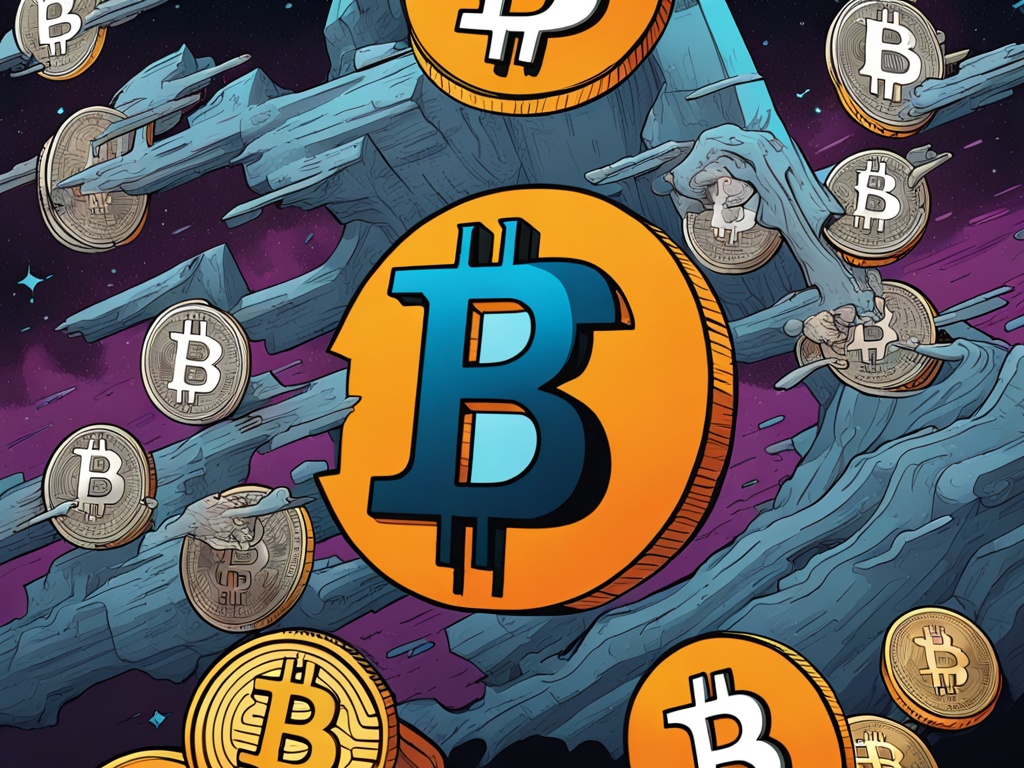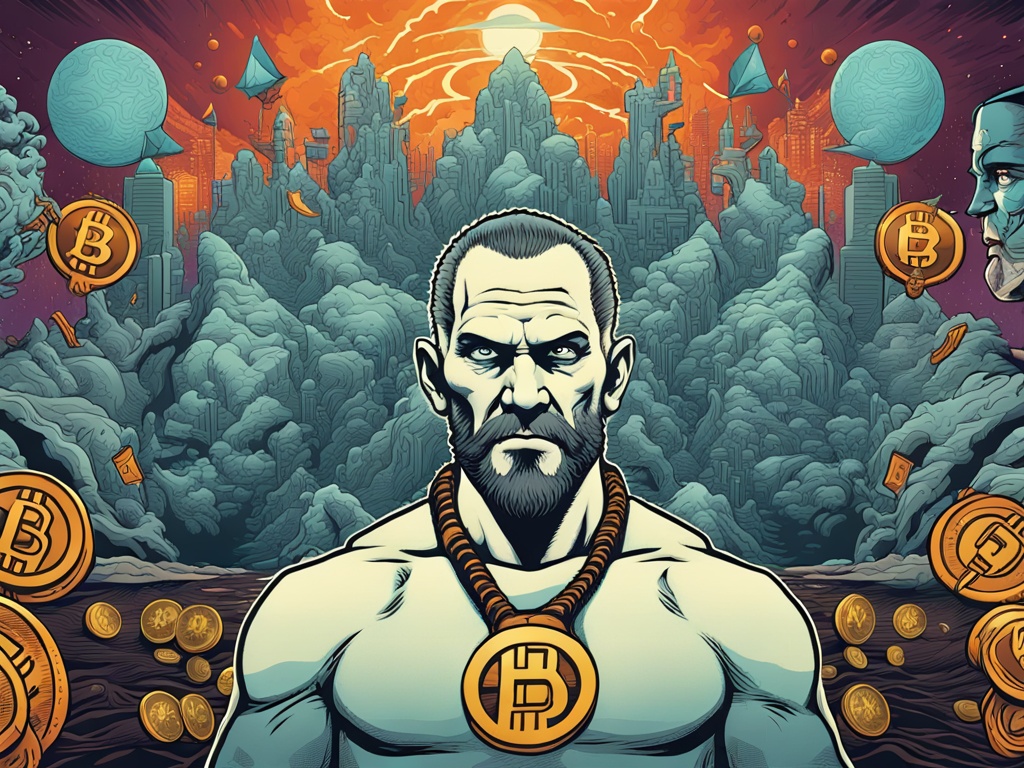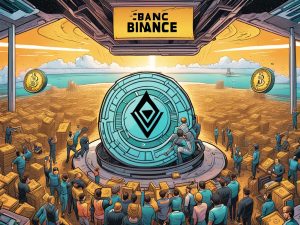Tokens and Scams Take Center Stage with Squid Game Season 2’s Release
Hey there! If you’ve been keeping an eye on the crypto world lately, you might have noticed something unusual happening around the release of Netflix’s “Squid Game” Season 2. It’s incredible how the world of entertainment can quickly intertwine with the crypto market, generating a surge in tokens inspired by popular shows. However, this intersection can sometimes come with a darker twist. Let’s dive into this phenomenon, understand why it matters, and what it means for potential investors like you.
Picture this: the moment a new season of “Squid Game” hit our screens, the crypto market was buzzing with excitement. Tokens that referenced the show began flooding exchanges almost instantly. While it’s kind of fascinating how pop culture can drive innovation in the crypto space, it’s also a cautionary tale. Just a day after the launch, blockchain security firm PeckShield issued alerts about fraudulent tokens related to the show. It’s like that sinking feeling when you realize you’ve stepped into a crowded room only to find out it’s a party of scammers lurking in the shadows.
Key Takeaways
- Increased Fraud Risk: The launch of Squid Game Season 2 triggered an influx of tokens, many of which were later flagged as scams.
- Historical Context: This isn’t the first time the crypto market has seen "Squid Game"-inspired token scams; a similar situation occurred in 2021.
- Community Vigilance: The crypto community is becoming increasingly aware and proactive in identifying potential scams.
- Significant Financial Losses: The crypto sector has faced over $2.3 billion in hacks and scams in 2024 alone.
So, why did these tokens surge, and what does it mean for investors? Let’s break it down.
A Surge in Squid Game Tokens
The “Squid Game” series isn’t just a nail-biting competition on screen; it’s become a cultural phenomenon that inspires everything from memes to merchandise—and yes, even tokens! The storyline revolves around desperate contestants risking everything for financial gain. This narrative, unfortunately, resonates with many crypto investors chasing quick profits. The alignment of these two worlds—high-stakes drama and high-risk investment—creates a perfect storm for exploitation.
As soon as the new season dropped, potentially legitimate tokens seemed to pop up like mushrooms after a rainstorm. But hold on! Not all that glitters is gold. Shortsighted excitement led many investors to throw caution to the wind, diving headfirst into these newly minted tokens without doing their homework. It’s a classic case of FOMO (fear of missing out)—and we’ve all been there. I remember my own FOMO experience with a trendy stock years back, and let’s just say it didn’t end well.
Warning Signs: The Scammers are Back
Right on cue, attention was drawn to a particular token that seemed too good to be true. PeckShield cautioned investors about a specific token on Ethereum’s Base platform, noting some dubious signs, like a single deployer holding a staggering amount of the total supply. If you’ve ever played poker, it’s like sitting at a table where you notice the same player winning every hand—something’s off, right?
Moreover, the crypto community quickly began pointing fingers at a “Squid Game”-themed account on a social platform aggressively promoting their token. Reports of groups with identical wallet behaviors suggested price manipulation, a classic red flag for scams. It’s a well-known game in the crypto world: pump-and-dump schemes that suck in unsuspecting investors before vanishing in a puff of smoke.
Echoes from the Past: Lessons Unlearned?
This situation isn’t unprecedented. Back in 2021, after the first season of “Squid Game,” a token named ‘SQUID’ skyrocketed, gaining recognition for an unbelievable 45,000% price increase. But what followed was nothing short of a nightmare—investors found themselves unable to sell their holdings, leading to what was one of the notorious rug pulls the industry had ever seen. It’s like getting a beautiful gift box but finding a rock inside once you unwrap it.
This trend of speculative, hype-driven tokens brings forth a crucial lesson for potential investors: always do your research. You wouldn’t invest in a business without knowing its background, right? The same principle applies here. Read those whitepapers, check the community feedback, and look out for any dubious behaviors.
Staying Vigilant: Empowering the Community
What’s encouraging, though, is that the crypto community seems to be growing increasingly vigilant about scams. Many crypto enthusiasts are sharing their experiences and warning each other about potential frauds. It’s like that circle of friends who always look out for one another—making sure no one gets burned again.
However, the reality is that scams have become a persistent issue in the crypto space. In 2024 alone, over $2.3 billion has been lost to hacks and scams—a staggering figure indicating the need for heightened awareness. Remember that you’re not just putting money into a token; you’re investing in a wider ecosystem that’s still working out its growing pains.
Reflecting on the Trends
As we wrap this discussion, I want to leave you with a question to ponder: Are we as investors getting caught up in the excitement behind pop culture phenomena like “Squid Game,” or can we maintain the thoughtful, research-oriented approach that investing deserves? It’s a delicate balance between seizing opportunities and practicing due diligence.
In the end, staying informed and cautious is key in the ever-changing world of cryptocurrency. Open conversations like this one are essential for empowering investors to make better decisions. Now, before you dive into those flashy tokens, remember—sometimes, the fastest way to lose money is by chasing the latest trend without asking the right questions.
So, what’s your take on the intersection of entertainment and investment? Do you think we can learn from these trends, or are we destined to repeat history with each new wave of exciting pop culture?
For more insights, you might want to check out these related phrases:





 By
By
 By
By
 By
By

 By
By